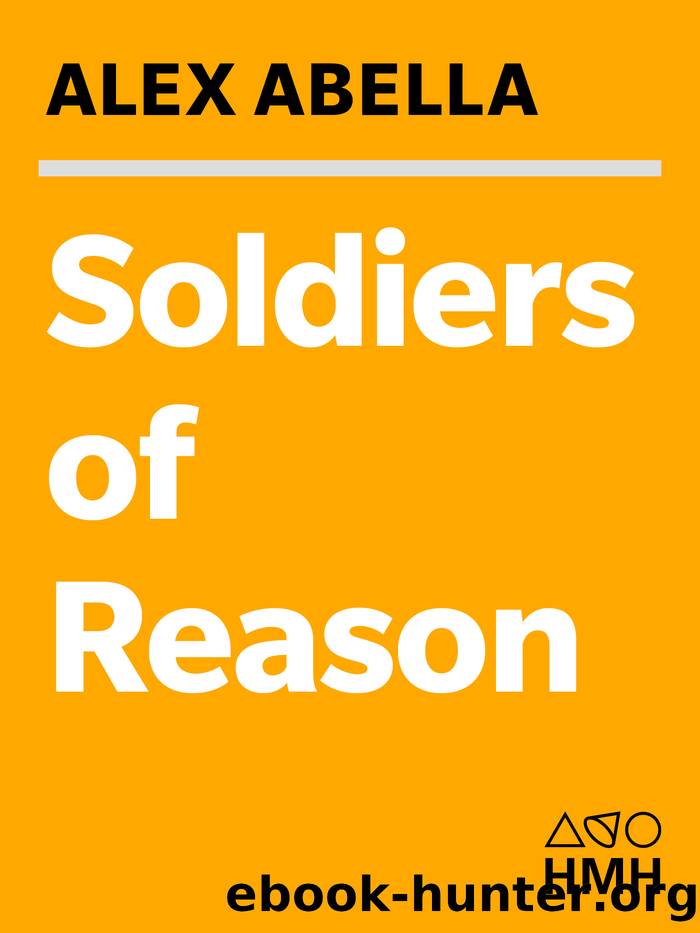Soldiers of Reason by Alex Abella

Author:Alex Abella
Language: eng
Format: epub
Publisher: Mariner Books
Califano used the Urban Institute to block RANDâs access to social policy work. He leaned heavily on all federal agencies to channel a portion of their research funds to the institute. He also touted the work of the institute to policy makers around the country, sending letters to the governors of all fifty states and the mayors of the countryâs largest cities underlining President Johnsonâs commitment to the institute and encouraging them to establish a working relationship with it.17
A frustrated Rowen was left with no choice but to lead RAND into securing greater funding from nongovernmental sources, including private industry and large private foundations. Given its position at the apex of the military-industrial complex, RAND was certainly well placed to leverage its connections with the private sector. Two of its trustees were vice presidents of Standard Oil; in 1968, its board chairman would be Standard Oil vice president David A. Shepard. Paul Nitze suggested RAND do research on the connection between American foreign policy and oil interests in the Middle East. However, RAND was unable to carry out the work since oil companies wanted to keep the results of the studies to themselves, while RANDâs charter explicitly prohibited it from contracting for proprietary research. Instead RAND turned to the Ford Foundation, just as in previous occasions, for a major portion of its social research funding. Perhaps most significant of all, RAND entered into a marriage of convenience with the one major figure in the national political landscape who seemed capable of standing up to the Johnson administration: New York City mayor John V. Lindsay.
The photogenic forty-three-year-old Lindsay was often dubbed the âRepublican Kennedy.â A decorated Navy lieutenant and Yaleeducated lawyer, Lindsay was descended from old New England stock. Seven times elected congressman from New Yorkâs Silk Stocking district (the GOP strongholds of Park Avenue and Manhattanâs Upper East Side), in 1965 he had won the mayoral race as the voice of reform. âHeâs fresh and everybody else is tired,â was his slogan, cribbed from journalist Murray Kempton.18 Journalists, liberals, and minorities gave him their votes and their hearts in what would amount to the last swoon of American big-city liberalism.
Lindsay was cut from the same cloth as then New York governor Nelson Rockefeller: Republicans who aimed to be both probusiness and pro-civil rights, in the process sometimes proving themselves more liberal than Democrats. As Lindsay said after first being elected to the House of Representatives, âI expect to lay out proof that the Republican Party . . . will stand for progressive measures designed to further the freedom and security of the individual.â19
True to his word, in 1963 Congressman Lindsay fought to block attempts by Attorney General Robert F. Kennedy to expand the 1918 Sedition Act to curb criticism of U.S. policies by Americans abroad.20 Years later, after his mayoral triumph, Lindsay pledged that he would bring to heel the powerful vested interests of unions and bureaucracies that controlled New York City. He therefore refused to meet behind closed doors
Download
This site does not store any files on its server. We only index and link to content provided by other sites. Please contact the content providers to delete copyright contents if any and email us, we'll remove relevant links or contents immediately.
| Biographies | Company Profiles |
| Economic History |
Pale Blue Dot by Carl Sagan(5009)
The Rules Do Not Apply by Ariel Levy(4970)
Goodbye Paradise(3810)
Ogilvy on Advertising by David Ogilvy(3622)
Liar's Poker by Michael Lewis(3450)
Delivering Happiness by Tony Hsieh(3427)
Into Thin Air by Jon Krakauer(3400)
Purple Cow by Seth Godin(3205)
Rogue Trader by Leeson Nick(3046)
The Social Psychology of Inequality by Unknown(3031)
The Airbnb Story by Leigh Gallagher(2857)
4 - Harry Potter and the Goblet of Fire by J.K. Rowling(2703)
The Mind Map Book by Tony Buzan(2580)
Bossypants by Tina Fey(2532)
Claridge's: The Cookbook by Nail Martyn & Erickson Meredith(2407)
All the President's Men by Carl Bernstein & Bob Woodward(2379)
Six Billion Shoppers by Porter Erisman(2304)
Master of the Game by Sidney Sheldon(2292)
Alibaba by Duncan Clark(2084)
